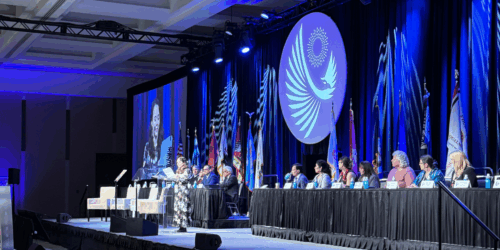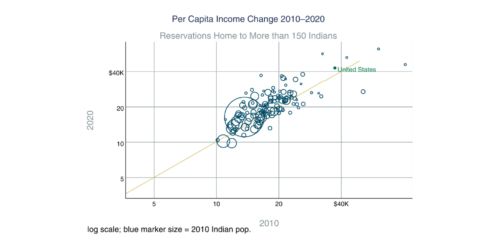A team of researchers from the Harvard Kennedy School release a research report that examines Census data and socioeconomic characteristics by decades (1990-2020) for American Indian tribal nations.
The Databook presents fourteen indicators of population, income, poverty, labor, housing, and education for Indian reservations in the Lower 48 states in the US from 1990 to 2020. It also identifies some of the variation and differences within Indian Country, although a complete examination is beyond its scope. While reservation economic development has led to improvements in some of these indicators over the last three decades, gaps remain between American Indians on reservations and the average outcomes for the US as a whole.
The 2025 Databook finds that there has been a reduction in total unemployment and lower poverty rates in these tribal nations over time. At the same time, there are continuing disparities in income, education, and infrastructure that require sustained policy attention.
By presenting a detailed view of social and economic change over time, the report offers policymakers, tribal leaders, and researchers valuable insights into both the progress and challenges of reservation life. The findings also demonstrate how culturally grounded governance and tribally driven economic strategies are shaping a more resilient and sustainable future for Native nations.





